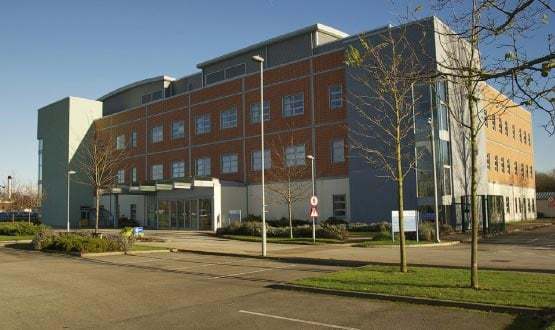GP complaints in Warrington after Lorenzo switch
- 25 July 2016

Warrington and Halton Hospitals NHS Foundation Trust says GP complaints about incomplete discharge summaries since the trust switched electronic patient records have been largely resolved.
Recent NHS Warrington Clinical Commissioning Group board papers show the trust was failing to meet its target to provide GPs with timely discharge summaries since switching to the Lorenzo electronic patient record in November 2015.
In the three months since going live with Lorenzo, 650 discharge summaries were sent to GPs without a primary diagnosis.
On Wednesday, the trust confirmed to Digital Health News that it had still not hit this target but said performance was improving and the quality of data provided to GPs was now better than it had been before Lorenzo was deployed.
“The issues raised by the CCG is nothing to do with the quality of content. It’s around the timeliness of sending them out.” Jason DaCosta, IT director at both the trust and the CCG, said.
DeCosta said the problem was not with the EPR but with how staff were adapting to system. Some summaries were not being sent because staff mistakenly filled them out before discharging patient, which was the pre-Lorenzo process, rather than afterwards. “There was an element of confusion.”
During a meeting in May, a CCG board member said the trust was not meeting discharge summary targets and this was “having a negative impact on the quality of care being delivered to patients”.
The papers note that a “contractual discussion is required with the trust to discuss the consequences and reminding them that this information is required for quality purposes and the CCG does not want to apply financial consequences”.
During the meeting, the CCG’s chief clinical officer Dr Andrew Davies told the board that in the last quarter 650 discharge summaries were sent to GPs without a primary diagnosis. This compared to 10 in the quarter before Lorenzo was deployed.
During another meeting in April, a board member noted these issues had led to GPs making “many formal complaints” about the lack of information and duplication of discharge summaries.
In a statement provided to Digital Health News, the CCG said the data quality of discharge summaries had improved since concerns were raised in May and now meet the Academy of Medical Royal College standards, which specifies the quality of information required for electronic medical records. However, there continued to be issues of “timeliness” in getting summaries to GPs.
“The CCG will continue to support the trust as it strives to meet the required standards and does not want to apply any financial consequences on the trust at the present time.”
Warrington and Halton deployed CSC’s Lorenzo EPR in November last year. In its board papers the trust has disclosed several problems arising since the deployment.
These included “high levels of uncoded activity”, a rise in DNAs, and “inadequate and inappropriate transfer of patients’ information”.
DaCosta said there had been “stabilisation issues” after go-live but these had been resolved and the trust was seeing real benefits of having richer patient information.
“Putting in a new PAS or EPR, especially if you haven’t done it for 20 years, it exposes everyone. It tests your organisation and that would be true for every system.”
Warrington and Halton is one of 12 trusts in the North, Midlands and East trusts to select Lorenzo and receive additional central funding under an agreement between supplier CSC and the Department of Health that was signed in 2012 as the National Programme for IT in the NHS was struggling.
An additional three trusts are awaiting approval under the agreement and will likely received funding. Some of these trusts have also reported problems in the period immediately after deploying Lorenzo, and the majority were hit by national outages of the system earlier this year.
However, Lorenzo has also continued to prove popular, picked up by trusts in other parts of the country, including the Royal Brompton and Harefield NHS Foundation Trust and the Salisbury NHS Foundation Trust. CSC is now planning to launch Lorenzo in Australia and New Zealand.
CSC did not provide comment for this story but earlier this month vice president for the UK and Ireland, Philippe Houssiau told Digital Health News that he was proud of Lorenzo’s record in the NME.
Many of the problems reported in the board papers were normal for an “absolutely massive” shift not just in IT but in how staff work with these systems, he said. “As with any new system deployment, it requires a lot of lot of stress and a lot of engagement. Some trusts are in a better position to deal with this level of change than others.”
Want to read more about Lorenzo, CSC and the National Programme for IT? Read our July feature here.




